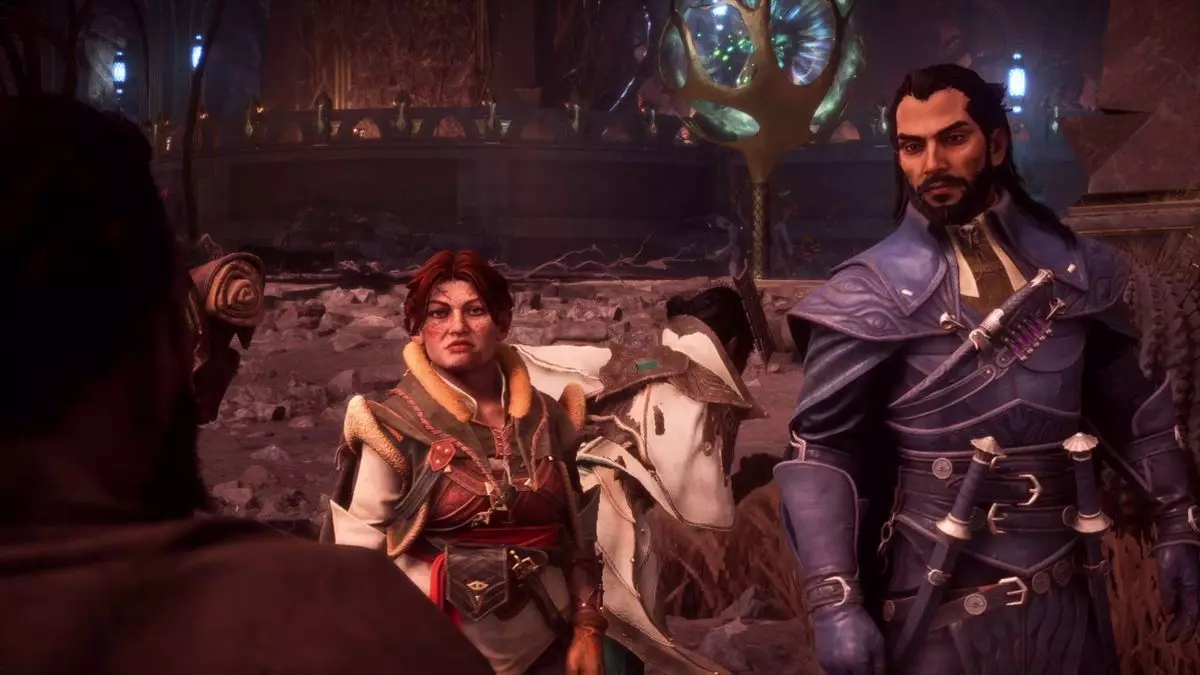In the realm of video game narratives, choices often hold significant weight, shaping not only the storyline but also the emotional landscapes players traverse. In Dragon Age: Veilguard, players are faced with a compelling and gut-wrenching decision that narrowly encapsulates the series’ penchant for moral ambiguity—whether to support Minrathous or Treviso amidst the chaos unleashed by Ghilan’nain and his Blight Dragons. This choice arrives abruptly, thrusting players into a conundrum where each option carries substantial consequences for characters and cities alike.
As players immerse themselves in the unfolding story of Dragon Age: Veilguard, they encounter two cities under siege, both susceptible to the damaging winds of fate. Minrathous, home to the powerful Venatori, represents a central hub of political intrigue, while Treviso, with its affiliation to the Antivan Crows, offers a different set of allegiances and complications. The sudden choice to aid one city means resigning the other to doom, a reality that resonates deeply within the player experience because both outcomes are steeped in pain and loss.
In this intricate tapestry of story and character, the Blight Dragons aren’t just a mindless threat; they serve as a metaphor for the struggle between chaos and order in the realm. The emotional stakes for players are heightened by the attachment formed with Neve and Lucanis—companions whose fates are tied to the cities they inhabit. When faced with a choice that is anything but straightforward, players inevitably must question their priorities and emotional investments.
The weight of the decision rests heavily upon players, transforming what might seem at first glance a clear-cut choice into a layered dilemma. Helping Minrathous means averting a potential coup by the Venatori, effectively safeguarding the political landscape and maintaining a semblance of power balance. However, it simultaneously allows Treviso to succumb, leading to a cascade of negative repercussions, including failing side quests and losing integral allies. The aftermath heralds a sinister reality: with the Antivan Crow merchant out of the picture and new quests emerging that highlight the dire consequences in Treviso, players must grapple with the psychological fallout of their decisions.
On the other side of the coin, if players decide to aid Treviso in its struggle, the immediate payoff appears beneficial—the canals remain intact, and civilian lives are preserved. But this comes at the cost of Minrathous, doomed to suffer in the wake of the Blight Dragons’ fury. Like the previous option, players face the haunting consequences of failed side quests and the disappearance of key characters, such as Lucanis, who becomes less accessible within the narrative. The heart-wrenching truth remains: no matter how players navigate this challenge, there are no truly positive outcomes.
Delving deeper, the choice also serves as a harrowing reflection of broader themes inherent in the Dragon Age series—the tension between loyalty and the greater good. Players may find themselves inclined to favor the character they have fostered a deeper connection with, sacrificing the needs of the other for personal gain or narrative satisfaction. This choice speaks to the moral complexity woven into the fabric of the game itself; not only do players dictate the fate of entire cities, but they also redefine their relationships with key characters, heavily influencing character arcs and romance options.
It is impossible to overlook that the narrative structure of Dragon Age: Veilguard masterfully intertwines gameplay with player emotion. The abrupt nature of the decision following Davrin’s recruitment adds a layer of urgency, forcing players to react instinctively rather than reflectively. The choice encapsulates the series’ overarching philosophy of consequence-driven storytelling, where every action reverberates across the saga’s unfolding tapestry.
As players navigate the stark realities presented within Dragon Age: Veilguard, the choices made carry profound implications that resonate beyond mere gameplay mechanics. The decision between Minrathous and Treviso is more than a tactical maneuver; it encapsulates an emotional crucible, testing both loyalty and moral fortitude. Every playthrough is distinct, shaped by personal values, character attachments, and ethical dilemmas, making this choice a significant marker of one’s journey within the Dragon Age universe. Ultimately, as players determine their path, they become a part of a grand narrative—a testament to the complexities of choice and consequence in storytelling.

